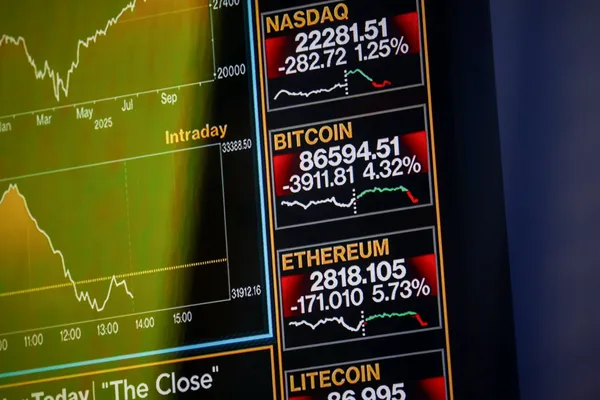
The stock market is seeing its worst week in over seven months as investors grapple with concerns over lofty valuations and uncertainties surrounding the return on large-scale investments in artificial intelligence. This has prompted a broad retreat from riskier assets, casting a pall over markets already jittery from the global economic recovery's uneven pace.
Investing in artificial intelligence (AI) has been seen as a sure-fire way to future-proof businesses and economies. However, recent patterns suggest a growing skepticism about these investments' efficacy, triggering a sell-off that's rippling across all sectors. Even technology giants, traditionally seen as safe havens during market turbulence, have not been spared, with their stocks taking a significant hit.
This retreat from riskier assets isn't just a phenomenon confined to the stock market. It's also causing ripples in other areas of the economy. Small businesses, which had hoped to leverage AI to boost their competitiveness, may now find it harder to attract investment. Salaried employees, particularly in the tech sector, may find their job security threatened if companies begin to rein in spending on AI projects.
From a macro perspective, this trend could have significant implications for global economies. Policymakers and market regulators will need to grapple with the potential fallout. If this AI investment slump persists, it could slow technological advancements, dampen economic growth, and even spark a broader market downturn.
For investors, this trend presents a conundrum. On one hand, the perceived overvaluation of AI stocks and the current market uncertainty might suggest a need for caution. On the other hand, the potential long-term benefits of AI cannot be ignored. Indeed, for those with a long-term investment horizon, this slump could present buying opportunities.
However, to navigate these complex dynamics, investors need to understand not just the financials, but also the technology behind AI and its potential impact on various sectors. This underscores the importance of financial literacy and technological understanding in today's investment landscape.
In conclusion, the current AI slump is creating waves across the stock market and the broader economy. Its impact is far-reaching, affecting everyone from large investors to salaried employees, and small businesses to policymakers. While it presents challenges, it also offers opportunities for those willing to understand and navigate the complex dynamics at play.

 Next
Next
Comments (0)
Leave a comment